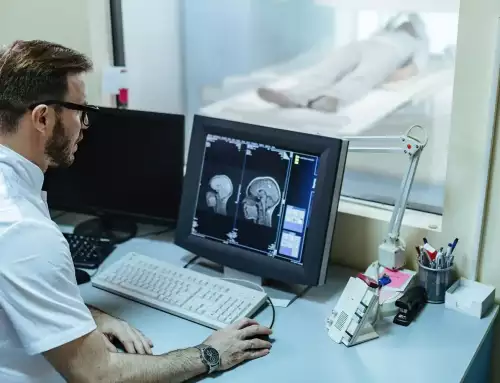TABLE OF CONTENT
We are constantly bombarded with too much daily information, expectations, and challenges. They bring emotional distress and various disorders. These disorders affect many people worldwide regardless of age, gender and background. They have become a familiar companion and an unseen enemy.
This article covers emotional stress and disorders. It aims to understand its definition and causes. Most importantly, it explains how to cope with emotional stress.
What is emotional distress?
When constantly negative thoughts or bad feelings overwhelm your mind and heart, emotional stress is caused. There are various types of disorder like:
- Anxiety
- Major depression disorder (MDD)
- Acute stress disorder (ASD)
- Hopelessness
Causes of emotional stress
Emotional trauma often emerges due to various factors, following are the causes of emotional stress listed below:
Traumatic Life Events
Incidents like loss of loved ones, trauma, or big life changes, can trigger distress. The stress of a divorce or a job loss, and the anxiety of all, cause acute stress and major depression.
Biological Factors
Biological Factors can cause emotional disorders. Brain chemistry and hereditary factors play a pivotal role in our emotional well-being.
Environmental Stressors
The modern lifestyle is full of stress, long working hours and financial pressures. These external pressures can erode mental resilience and persist emotional stress.
Psychological Factors
Psychological effects of emotional distress cause:
- Negative thoughts
- Major depression
- Acute stress disorders
- Low self-esteem
What is Major depressive disorder (MDD)
In 2008, the World Health Organization (WHO) ranked Major Depressive Disorder (MDD) as the third leading cause of the global burden of disease. The organization has projected that by 2030, MDD will rise to the top position.
MDD is a mental disorder. It is marked by lasting sadness. Individuals feel hopelessness and loss of interest in daily activities. However, practising good self-care, living a healthy lifestyle and seeking early support can wonder. These things can reduce the risk of developing MDD.
Studies found emotional distress in adults more than in children. Approximately 7% of UK adults feel stressed every single day. Interestingly, older people are less likely to feel overwhelmed due to stress compared to young adults.
Treatments for Major Depressive Disorder
Treatment for emotional distress includes therapies. In severe cases, psychiatrists prescribed medicines to nullify the symptoms of emotional distress.
Treatment for Major depressive disorder (MDD) usually includes emotional distress therapies like:
- Talking therapy
- Medicines, like antidepressants
- Cognitive-behavioural therapy (CBT)
In some cases, electroconvulsive therapy (ECT) may also be used. The goal of treatment is to alleviate symptoms, improve functioning, and prevent relapse. Several therapies are effective in treating Major Depressive Disorder (MDD).
What is Acute stress disorder (ASD)
People with acute stress disorder (ASD) have experienced or seen a traumatic event. ASD symptoms usually start within the first month of trauma and last up to four weeks. The condition is marked by intense anxiety, fear, and vulnerability. It also brings a range of physical and cognitive symptoms.
Experiencing occasional emotional stress and disorders is a natural part of human nature. But if ASD symptoms persist, intensify, or disrupt your daily life, then these issues should be addressed.
Treatments for Acute Stress Disorder
Managing emotional disorders for ASD typically involves a combination of psychological therapy and medication. The main goal of treatment is to help the person process the traumatic event. They will also learn to cope with the symptoms of ASD. Therapy can also help the person understand their reactions. They can reframe the traumatic event and learn coping skills. These skills will help them manage the situation.
How to cope with emotional trauma?
Coping with emotional distress can be faced, managed, and overcome. Developing resilience and coping strategies is key to regaining well-being. Here are some effective methods to consider:
Seek Professional Help
Therapy, counselling, and psychiatry can give useful tools. They also provide support for managing distress disorders. Psychologists can help you explore the underlying causes and guide coping strategies.
Build a Support Network
Lean on friends and family for emotional support. Talking to loved ones can provide a sense of connection and understanding. It reduces isolation.
Practice Mindfulness
Mindfulness techniques, like meditation and deep breathing, can help you stay grounded. They reduce the impact of negative emotions.
Maintain a Healthy Lifestyle
“Exercise improves mood state”
“We typically recommend that people with depression exercise, develop a healthy diet, and go to bed at a regular time.”
Dr. Thienhaus
Regular exercise, a balanced diet, and adequate sleep contribute to emotional well-being. These lifestyle factors can enhance your resilience to stress.
Final thoughts
ASD, MDD, and distress are tough. Self-help alone may not fully reduce emotional distress symptoms. But, you can regain control of your emotions with the right strategies and support.
If you’re noticing signs of ASD and MDD, feel free to contact Concise Medico today for a professional’s opinion. Our rehabilitation services bring wellness to your mental health.




